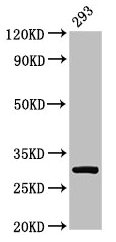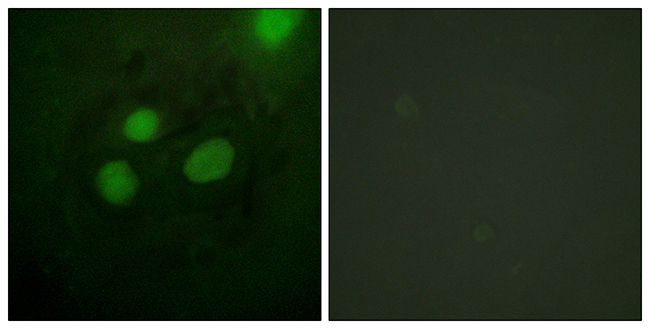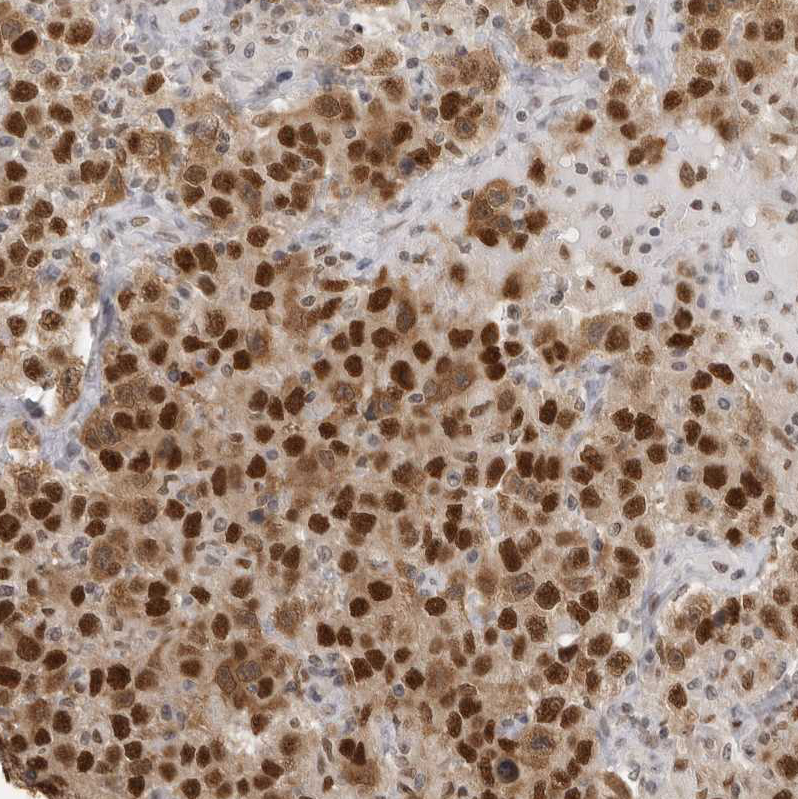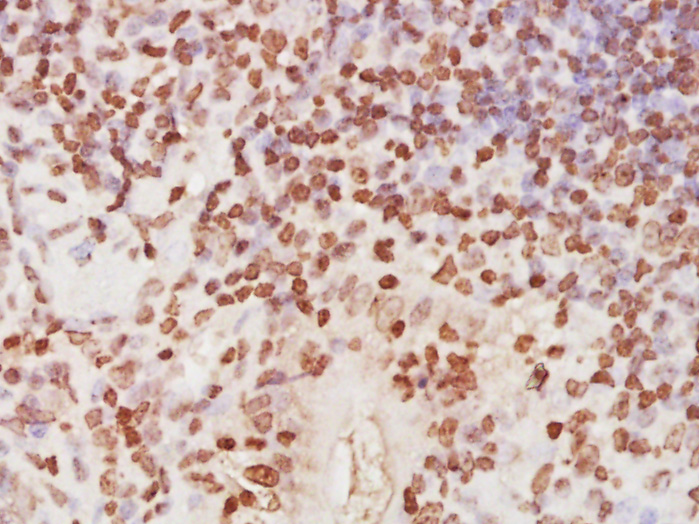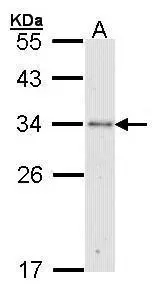Western blot analysis of extracts of various cell lines using RPA2 Polyclonal Antibody at 1:1000 dilution. 293T cells were treated by UV at room temperature for 15-30 minutes.
RPA2 Polyclonal Antibody
E-AB-60671
Product group Antibodies
Product E-AB-60671 is not available
Product not available
There may be an alternative product available, please contact our technical support team.
Overview
- SupplierElabscience
- Product NameRPA2 Polyclonal Antibody
- Delivery Days Customer12
- CertificationResearch Use Only
- Scientific DescriptionAs part of the heterotrimeric replication protein A complex (RPA/RP-A, binds and stabilizes single-stranded DNA intermediates, that form during DNA replication or upon DNA stress. It prevents their reannealing and in parallel, recruits and activates different proteins and complexes involved in DNA metabolism. Thereby, it plays an essential role both in DNA replication and the cellular response to DNA damage. In the cellular response to DNA damage, the RPA complex controls DNA repair and DNA damage checkpoint activation. Through recruitment of ATRIP activates the ATR kinase a master regulator of the DNA damage response. It is required for the recruitment of the DNA double-strand break repair factors RAD51 and RAD52 to chromatin in response to DNA damage. Also recruits to sites of DNA damage proteins like XPA and XPG that are involved in nucleotide excision repair and is required for this mechanism of DNA repair. Plays also a role in base excision repair (BER probably through interaction with UNG. Also recruits SMARCAL1/HARP, which is involved in replication fork restart, to sites of DNA damage. May also play a role in telomere maintenance.
- UNSPSC12352203

